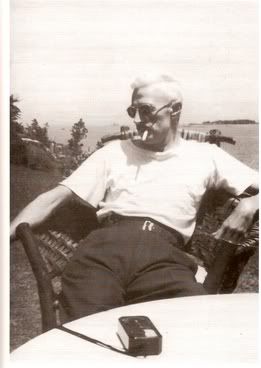Matt Deckard
Man of Action
- Messages
- 10,045
Who's read his work and what do you think?



 Gustin Vintage Heavyweight Sweatshirt - Natural Rainbow Nep - $119 Rugged 14oz cotton that gets better with every wear.
Gustin Vintage Heavyweight Sweatshirt - Natural Rainbow Nep - $119 Rugged 14oz cotton that gets better with every wear.  Grant Stone Diesel Boot Dark Olive Chromexcel - #395 Goodyear welted, Horween Chromexcel, classic good looks.
Grant Stone Diesel Boot Dark Olive Chromexcel - #395 Goodyear welted, Horween Chromexcel, classic good looks.  Himel Bros. - The Ross Mk. 1 Leather Jacket Classic D-pocket motorcycle/aviator style jacket.
Himel Bros. - The Ross Mk. 1 Leather Jacket Classic D-pocket motorcycle/aviator style jacket. 